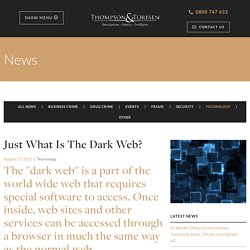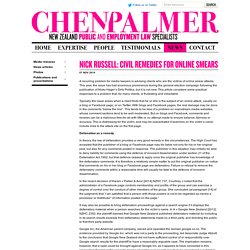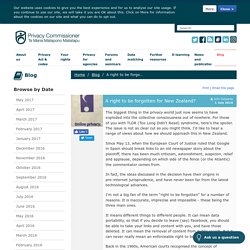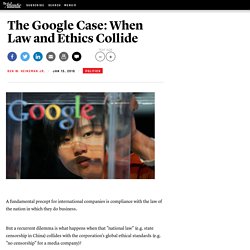

Google Puts A Price On Privacy. Search engine liability for autocomplete suggestions: personality, privacy and the power of the algorithm. 003 editorial. Google Japan Case Raises Privacy Issues. 2006 L4. 2006 L4. Potential Fair Trading Act liability for website material - NZ Law Society. Just What Is The Dark Web? Just What Is The Dark Web?

August 17, 2015 | Technology The "dark web" is a part of the world wide web that requires special software to access. Once inside, web sites and other services can be accessed through a browser in much the same way as the normal web. Chen Palmer - New Zealand Public and Employment Law Specialists. A recurring problem for media lawyers is advising clients who are the victims of online smear attacks.

This year, the issue has had enormous prominence during the general election campaign following the publication of Nicky Hager’s Dirty Politics, but it is not new. This article considers some practical responses to a problem that, for many clients, is frustrating and intractable. Typically the issue arises when a client finds that he or she is the subject of an online attack, usually on a blog or Facebook page, or on Twitter. With blogs and Facebook pages, the real damage may be done in the comments “below the line”. A right to be forgotten for New Zealand? The biggest thing in the privacy world just now seems to have exploded into the collective consciousness out of nowhere.

For those of you with TLDR (Too Long Didn’t Read) syndrome, here’s the spoiler. The issue is not as clear cut as you might think. The Google Case: When Law and Ethics Collide. A fundamental precept for international companies is compliance with the law of the nation in which they do business.

But a recurrent dilemma is what happens when that "national law" (e.g. state censorship in China) collides with the corporation's global ethical standards (e.g. "no censorship" for a media company)? The answers are not easy--or uniform. They depend, greatly, on the corporation's deeply held values and on strongly held views of important stakeholders (shareholders, creditors, employees, customers, suppliers).
The recent Google announcement about re-evaluating its business in China demonstrates how acute the dilemma can be.